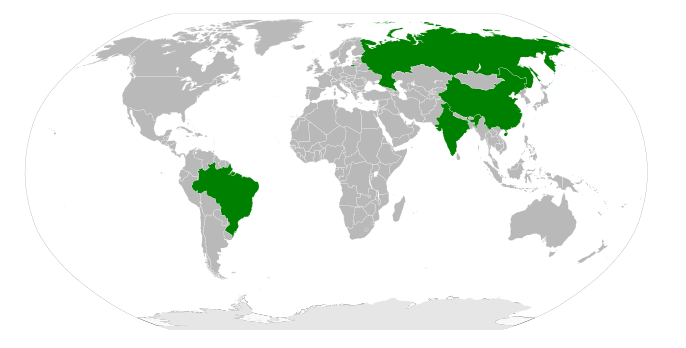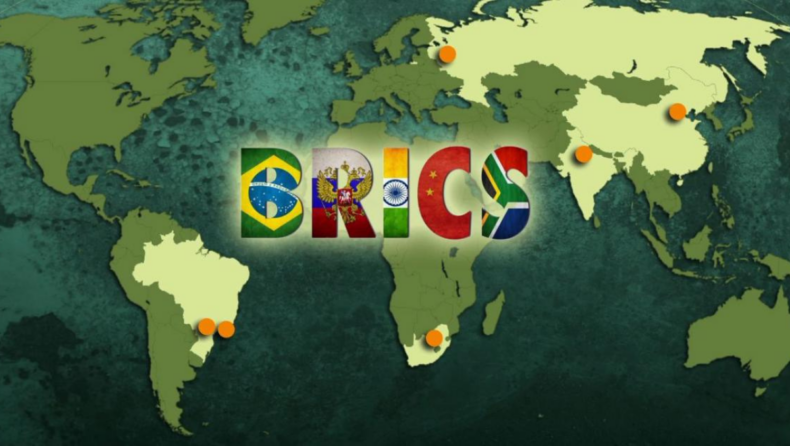BRICS is a group of important economies: Brazil, Russia, India, China, and South Africa. It was first called “BRIC” in 2001 by a person named Jim O’Neill from Goldman Sachs. He thought these economies would become really strong by 2050. Later, South Africa joined, making it BRICS. However not until yesterday 6 more members which are, Saudi Arabia, UAE, Ethiopia, Argentina, Iran and Egypt were invited and will be formally joining the bloc.
Why is BRICS important?
Together, these countries are big, covering a lot of land (about a quarter of the world’s land) and having a lot of people (around 3.21 billion, more than 40% of the world’s population). Among them, Brazil, Russia, India, and China are some of the biggest countries in terms of people, land, and money (economy). People think India, China, and Russia are already strong or getting stronger like superpowers.
The BRICS grouping holds significant importance for India on various fronts. Economically, it opens doors for trade and investment cooperation with some of the world’s fastest-growing economies, bolstering India’s economic growth. The collective influence of BRICS enables India to have a stronger global voice, especially on critical issues like sustainable development and global governance reform. Moreover, BRICS helps India maintain a balanced foreign policy by engaging with a diverse set of allies.
How is BRICS different from NATO?
BRICS and NATO are separate global entities. BRICS comprises Brazil, Russia, India, China, and South Africa, with its main focus being economic cooperation and worldwide impact. Its goal is to boost economic advancement, trade, and progress within its participant nations. In contrast, NATO comprises 30 member nations, mainly from Europe and North America, and operates as a defence alliance. NATO’s primary objective is to safeguard and stabilize its members by organizing collective military actions to counter security challenges.

The tussle over the expansion of BRICS
India had been opposing the expansion of the group because the set of countries that were being added would certainly favour China and Russia more, thus making India’s position weak in the bloc. India being one of the dominant players in the group does not want to lose its position. BRICS is also India’s biggest showstopper for its policy of non-alliance and affirms the country’s commitment towards non-alignment. According to recent data, over 16 countries applied for membership in the BRICS including some heavyweights like – Indonesia, and Bangladesh.
China had been requesting the expansion of the alliance in order to make it more powerful and expand its influence as a whole. The expansion can also make it comparable to the likes of G7 and G20, but only representing the global south and developing economies.
What will be New After BRICS Expands
The inclusion of Saudi Arabia, Egypt, Iran, Argentina, and Ethiopia would transform the group. Geographically diverse, it would introduce fresh perspectives and economic strengths, such as Saudi Arabia and Iran’s oil production and Argentina’s agriculture. However, this expansion could complicate geopolitics and decision-making, potentially slowing down consensus. Each new member could contribute unique expertise—Saudi Arabia on energy, Egypt on security. Cohesion might face challenges due to diverse priorities. Yet, this enlargement could spark economic opportunities through varied trade agreements and partnerships. Moreover, a larger BRICS might yield more significant global influence, advocating for common positions on the international stage with a more diverse coalition.
To Conclude
In this evolving landscape of global collaboration, the expansion of the bloc signifies a pivotal moment. As the group welcomes new members with diverse strengths and perspectives, it faces both opportunities and challenges. The journey ahead will require adept navigation of geopolitical complexities, effective decision-making, and a collective commitment to harnessing the potential of this enlarged alliance for the betterment of member nations and the world at large. As BRICS continues to reshape the global economic and diplomatic landscape, its expanded reach promises to shape the course of international relations in the years to come.













